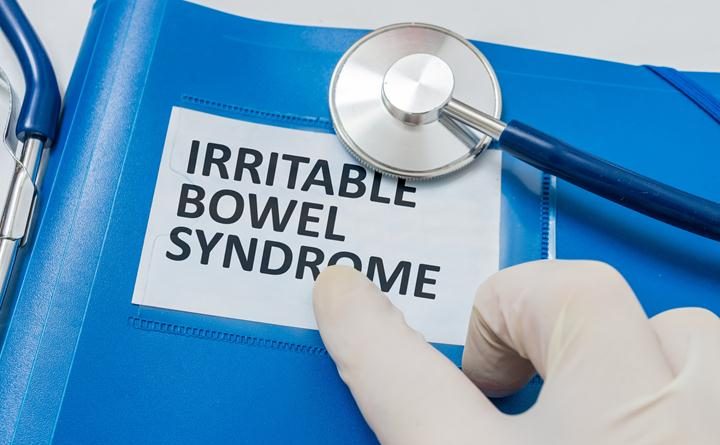Irritable bowel syndrome can have a very negative impact on your lifestyle. The condition can turn an otherwise lovely day on its head. The sad part is that the condition has no known cure since a variety of factors can cause it. These factors include diet, stress, previous intestinal infections, anxiety, and depression. Fortunately for you, it’s manageable through various IBS treatment options. If you’ve been suffering from cramping, diarrhea or abdominal pain, or know someone who suffers from these symptoms, read on to know the leading treatment methods for IBS. Each treatment option focuses on treating the condition based on the severity of the symptoms.
IBS Treatment Through Lifestyle and Home Remedies
Lifestyle change is one of the easiest ways to treat mild IBS symptoms. The results might not be immediate, but in the long term, changes in lifestyle can help you prevent recurrence of the symptoms. Some of the changes you can make include the following:
- Regular exercise
Exercise has several benefits. As far as treating IBS goes, it helps in managing stress and depression. Exercise also helps to stimulate your intestines, enabling normal contractions which help to eliminate gas and promote the passing of stool. Most experts recommend that you start with light workouts and gradually increase intensity.
- Cut down on alcohol and coffee
People diagnosed with irritable bowel syndrome are usually advised to increase fluid intake. However, the type of liquids you consume will affect whether you can effectively manage IBS symptoms or not. Alcohol and coffee are substances which can make diarrhea worse. Alcohol, in particular, dehydrates the body and can promote constipation. You should, therefore, cut down on alcohol and coffee and drink plenty of water or fresh fruit juice instead.
- Eat small portions regularly

Source: Thinkstock/SIphotography
Eating small portions helps your body regulate its bowel functions. Small portions are also easy to digest and excrete. It’s also important to time your meals. That is, eat at roughly the same time each day.
Irritable Bowel Syndrome Treatment Through Dietary Changes
In some cases, specific types of food can cause or trigger IBS. A simple change in your diet can help you manage the condition better. Some of the top ways to manage the condition through diet changes include the following:
- Avoid IBS causing foods
Every person’s digestive system is unique. This means that you’ll need to identify the specific foods that trigger IBS symptoms and either completely avoid them, or eat them alongside other foods that counter their effects on your digestive system. As mentioned, you should cut down on alcohol and caffeinated beverages and foods. Other foods that are believed to cause constipation, diarrhea or gas include beans, gas, dairy products and fatty foods.
- Add more fiber to your diet
Dietitians usually recommend fiber as a treatment for constipation. However, it can have negative effects if your IBS symptoms include gas and diarrhea. Fiber retains moisture which can lead to worsening of diarrhea and buildups of gas inside your intestines. However, you can limit dietary fiber and take fiber supplements in its place. These supplements produce less gas and won’t retain water within your intestines.
- Increase intake of probiotics containing foods
Probiotics are often referred to as “good bacteria.” These help to break down food inside the digestive tract and have been found to provide relief for IBS symptoms. Some of the foods that contain a rich amount of probiotics include yogurt, sour pickles, and soft cheeses. Alternatively, you can also consume probiotics supplements to relieve IBS symptoms.
Irritable Bowel Syndrome Medication

Source: Thinkstock/STEFANOLUNARDI
If changes in diet and lifestyle prove ineffective in treating and managing IBS symptoms, irritable bowel syndrome medication can prove useful. The available medicines are designed to treat specific symptoms or causes of IBS. Besides fiber and probiotic supplements, some of the commonly administered IBS supplements include the following:
- Antidepressants
If IBS symptoms occur during periods of stress and depression, your doctor may prescribe antidepressants for treatment. Tricyclic antidepressants are commonly prescribed due to their effectiveness in managing depression and inhibiting activity of neurons which control the intestines.
- Antibiotics
Probiotics are harmless bacteria. However, your digestive tract is also home to billions of other bacteria which might cause infection leading to abdominal pain. In such instances, your doctor may prescribe antibiotics to get rid of the bacteria.
- Anti-diarrhea medicine
If severe diarrhea accompanies your IBS, anti-diarrhea medicines may be prescribed. Imodium is one of several common, over-the-counter anti-diarrhea medicines you can take. Alosetron is a prescription drug that’s meant to treat severe cases of diarrhea that haven’t responded well to other types of treatment.
- Antispasmodic and anticholinergic medication
Antispasmodic and anticholinergic medicines are used to help relieve painful abdominal spasms and diarrhea. Some of the more popular medicines include Bentyl and Levsin. However, it’s recommended that you use them sparingly because of possible side effects, including severe constipation.
IBS Treatment Using Alternative Medicine

Source: Thinkstock/Jochen Sands
Due to the possible side effects posed by using contemporary medicines, irritable bowel syndrome patients can also be prone to look for safer holistic solutions in alternative medicine. Some of the common ways to treat IBS symptoms using alternative medicine include the following.
- Herbs
Herbs contain certain properties that can help the body relieve pain, control hormone levels, reduce bloating, and manage diarrhea and constipation. Regarding IBS treatment, several herbs have shown to be effective in treating and managing symptoms. One of the most commonly used herbs is peppermint which has antispasmodic properties. Other herbs believed to have IBS treating properties include ginger, chamomile, fennel, and oregano.
- Acupuncture
This ancient Chinese healing method involves piercing specific parts of the body with needles. Although there are hardly any comprehensive studies supporting acupuncture’s effectiveness in treating IBS, many patients who undergo the procedure report getting relief from their symptoms.
- Hypnosis
Hypnosis is another tried method of IBS symptom relief. It involves working with a professional who guides you through a process of relaxation of the mind, body and intestinal muscles.
Irritable bowel syndrome treatment can involve using one or more of the methods above depending on the severity and types of symptoms you have. If the condition doesn’t occur frequently and you suspect that it’s being caused by a specific food, then it’s recommended you find out which one and stop consuming it. However, chronic IBS requires you first consult with your doctor to get a proper diagnosis and recommendation of the best IBS treatment method.
Featured Image Source: Thinkstock/vchal








